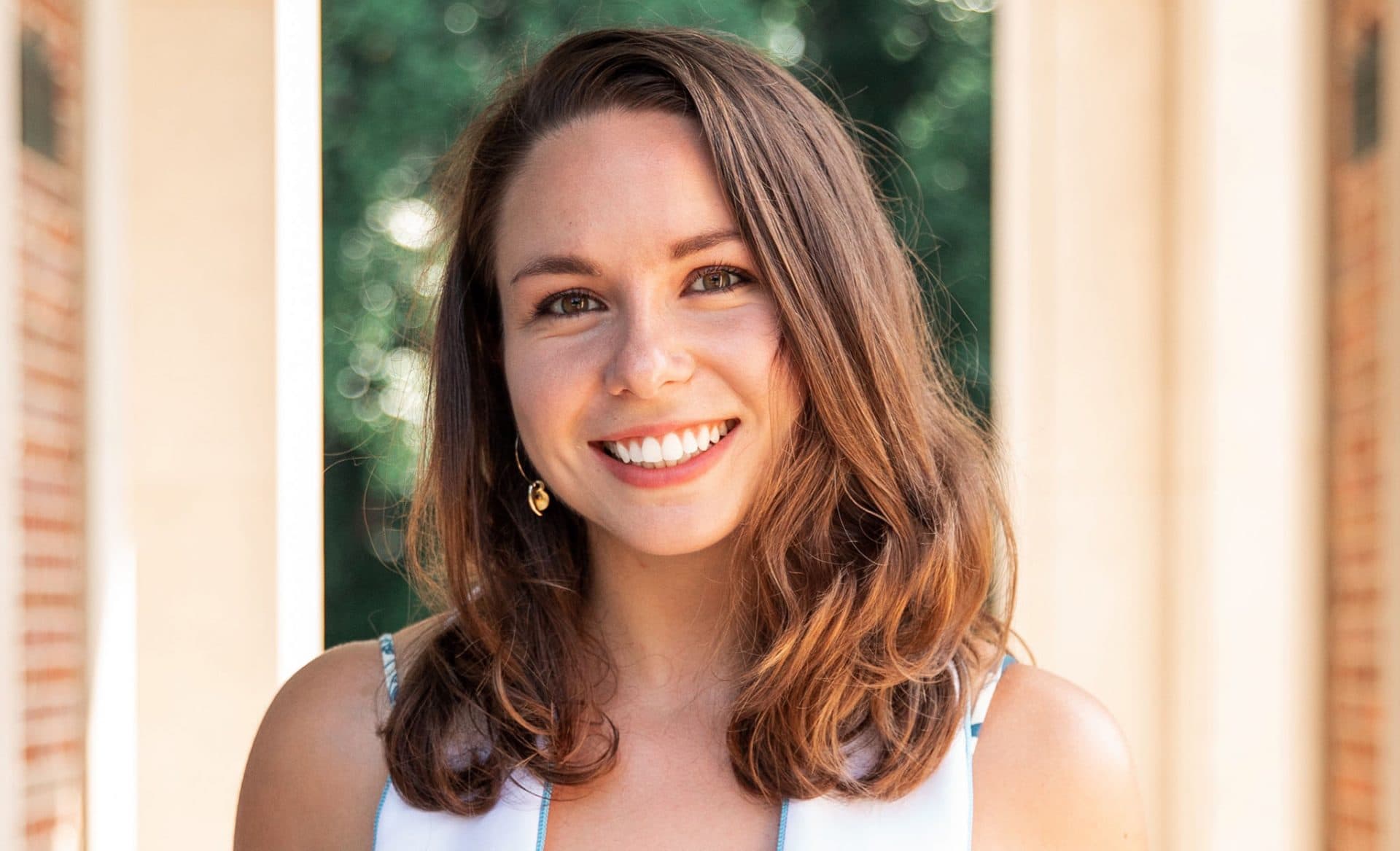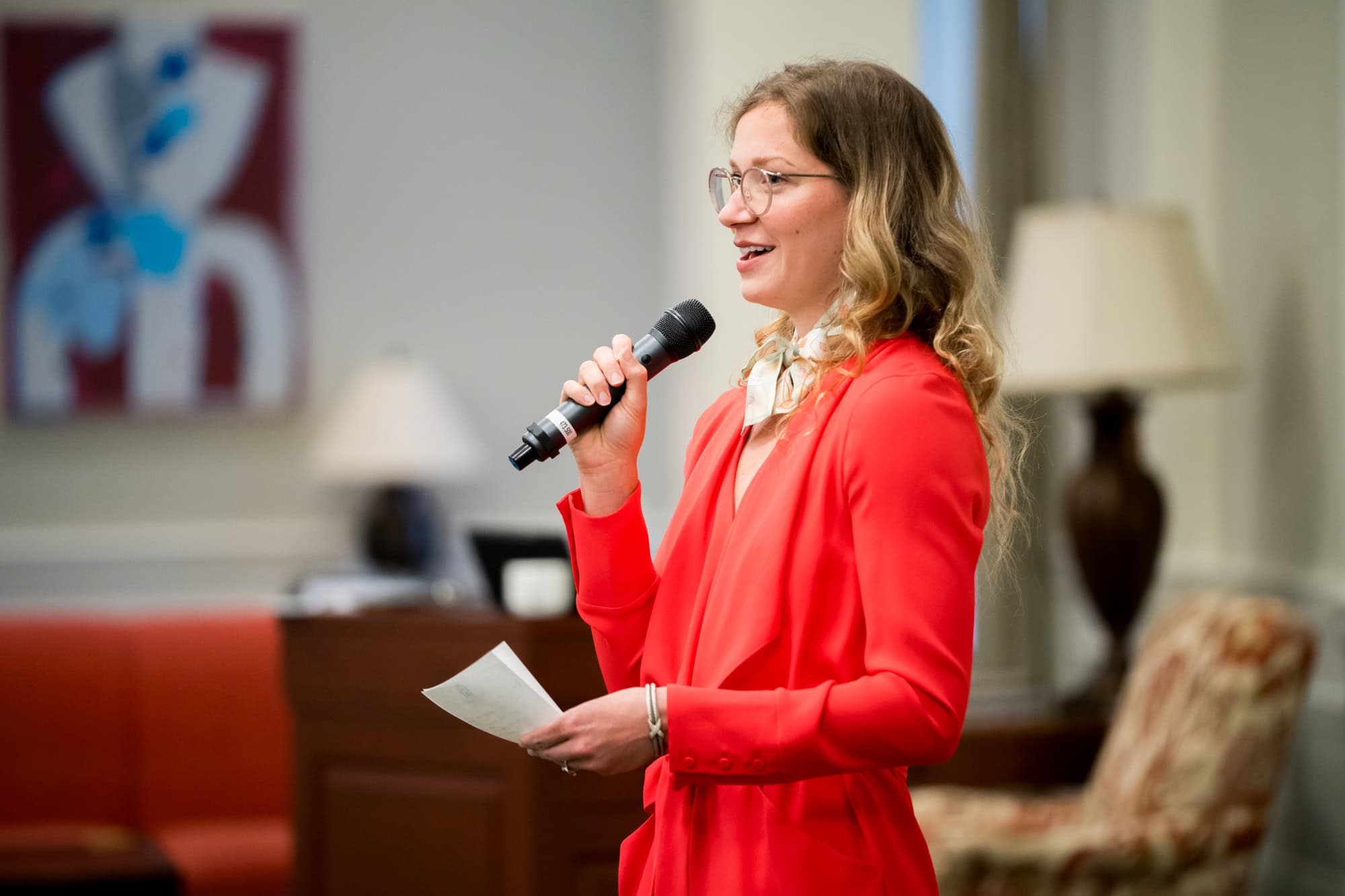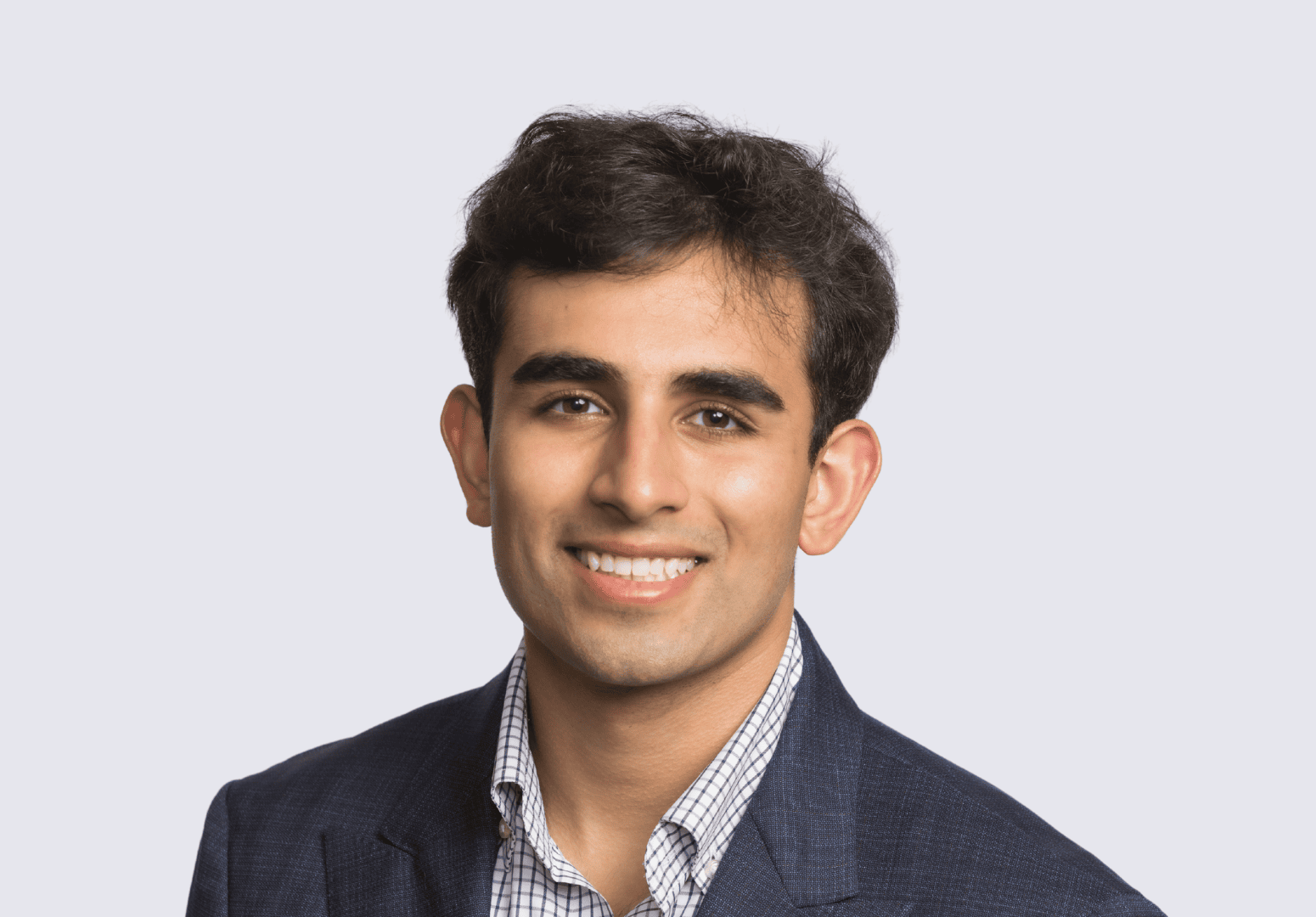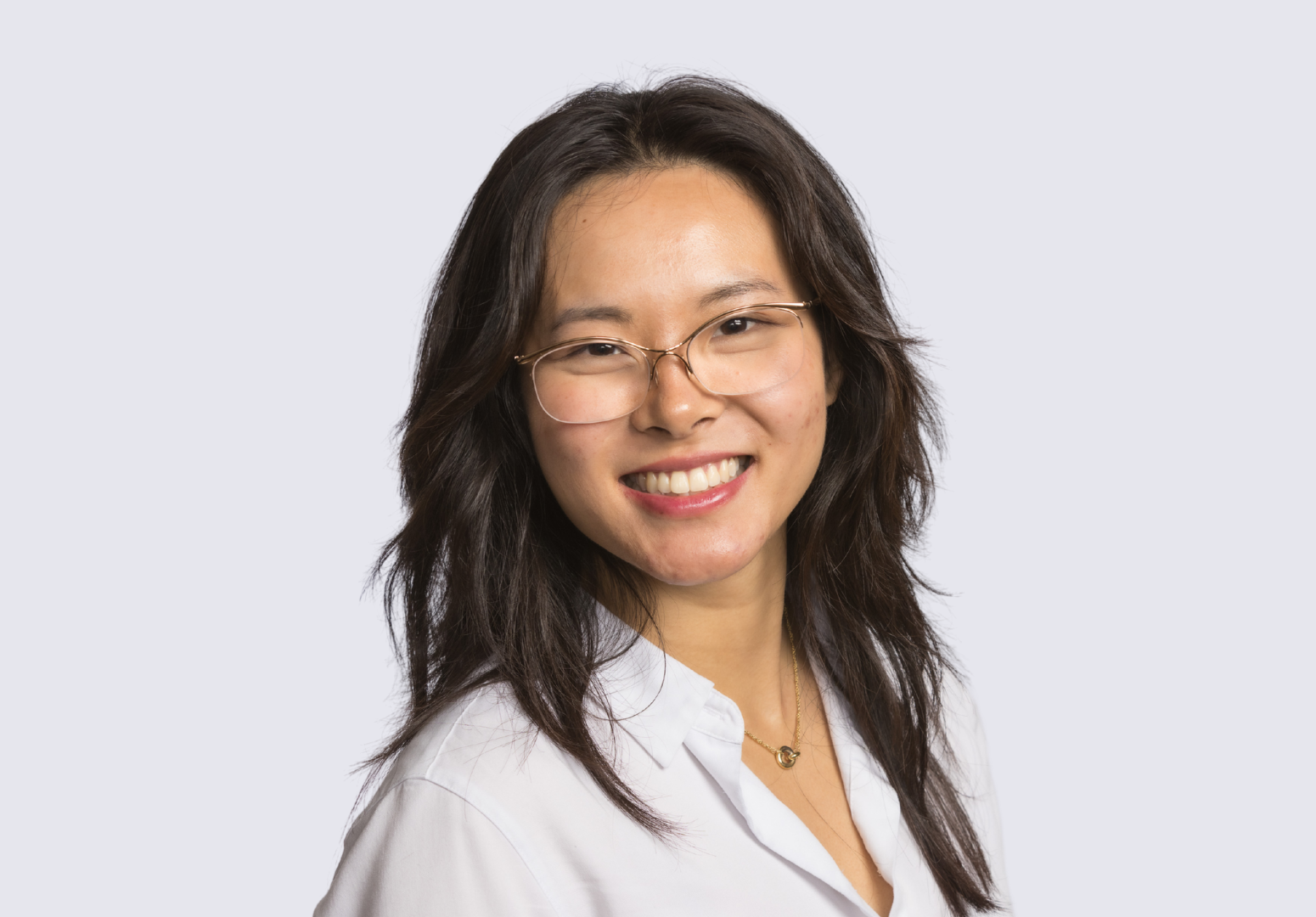
Sarah Mackenzie ’20
Sarah Mackenzie ’20 of Calgary, Alberta, has received the Rhodes Scholarship to pursue a fully funded postgraduate degree at the University of Oxford beginning this fall. The recent graduate is one of eleven Canadians selected to join the 2021 cohort, and she is the 51st Rhodes Scholar from the University of North Carolina at Chapel Hill, according to the University’s announcement of her award on November 23.
Sarah is the 32nd Morehead-Cain to receive the scholarship and one of two Carolina students to receive it this year. The second awardee, Peter Andringa, graduated in 2020 with degrees in journalism and computer science.
Established in 1902, the Rhodes is one of the oldest and most prestigious international scholarship programs. Scholars are selected based on academic excellence, character, leadership, and commitment to service.
On your mobile device, you can listen and subscribe to Catalyze on Apple Podcasts or Spotify. For any other podcast app, you can find the show using our RSS feed.
Catalyze is hosted and produced by Sarah O’Carroll for the Morehead-Cain Foundation, home of the first merit scholarship program in the United States and located at the University of North Carolina at Chapel Hill. You can let us know what you thought of the episode by finding us on Twitter or Instagram at @moreheadcain or you can email us at communications@moreheadcain.org.
Episode Transcription
(Sarah O’C)
Sarah, thanks for being here.
(Sarah M)
Thank you so much for having me.
(Sarah O’C)
Congratulations again on your Rhodes Scholarship. That is such great news, and we are really excited for you.
(Sarah M)
Thank you. Yeah, I’m really excited, too, and still in a bit of shock, it seems, but I just really can’t wait. And I’m so grateful.
(Sarah O’C)
What were you doing when you found out?
(Sarah M)
That’s a good question. I got the call at around 12:15 in the morning on that Saturday night. And so, I had been just waiting for it. The committee had notified us that we had to be on call and ready to receive a phone call starting at about 7:00 p.m. that day. I was just pacing around my apartment, waiting for the call and talking to Chuck a little bit and some of the other candidates who were also waiting for the phone call, who I connected with over the weekend. So, I was really grateful when it finally came in, but it felt like it was a long time coming for sure.
(Sarah O’C)
Well, that must have been such a moment of relief and celebration. So, tell us what you’re thinking of studying at Oxford and why you chose that field of research.
(Sarah M)
Yeah, sure. So, I’m looking to study an MPhil in Evidence-Based Social Intervention and Policy Evaluation. It’s housed in the Department of Social Policy and Intervention. And the reason I chose that particular program is because I felt as though I was really lucky to have a strong educational background in public policy from my undergraduate degree at UNC. And I found that the research component of my undergraduate experience was really formative and something that I had just barely scratched the surface of. And I wanted a two-year program that would enable me to work on a longer-term thesis and project and also refine some of my analytical and research skills.
(Sarah O’C)
You’ve got quite some time to think about this, but do you already have some ideas on what sort of project you might do for your thesis?
(Sarah M)
I think that something that is really important to me and that I care about is the interaction between poverty and involvement in the criminal justice system. And so, I can really imagine a thesis going in that direction. I’m originally from Canada, and I wrote my undergraduate thesis on criminal justice and poverty in Canada. And I think some sort of extension of that topic would be compelling to me. But, you know, at the same time, I think what really excites me about Oxford in this program is the potential and opportunity to have my interests and my discipline expanded and to encounter new projects that I think are exciting and beyond my current academic scope. I could see myself being pulled in a particular direction depending on who I’m surrounded by in the department.
(Sarah O’C)
You’ve mentioned a few times the connection between poverty and other socioeconomic factors, a topic you’ve researched at Carolina and also through your work in New York City. Tell us about what you’ve been up to at the public defense law firm there and the kinds of problems your team is tackling.
(Sarah M)
So, I accepted this job in New York City at a public defender’s office in Manhattan called the Center for Appellate Litigation. And we represent low-income defendants in their criminal appeals in proceedings in both Manhattan and the Bronx. I accepted this job in the spring of 2020 and moved up here in July of 2020, so I’ve been here for a couple of months now. And the project that I’m working on within that office is representing defendants who have sex convictions, who are then going to be evaluated and given a particular risk level and a designation on the New York Sex Offender Registry. These risk level hearings are really interesting and really challenging, but they carry pretty severe consequences for our clients. And those consequences range from public exposure on the Internet, including photos and home addresses, and then at the highest level, restrictions on their access to housing and other social services.
It’s been really interesting to think about the interaction between public policy and law and the impact that it has on low-income people because I think the Sex Offender Registration Act that we’re working under really seeks to punish people for heinous crimes that they’ve committed—but to continue to do so well past they’ve served their sentence and into their life beyond the term that they’ve been incarcerated. And so, it’s been really challenging to try and advocate for our clients to continue their treatment, their programming, and to get them stability and access to social services, which I think is really in line with an appropriate preventative public health-based response to thinking about crime, one that focuses on stability as a means to prevent recidivism.
(Sarah O’C)
Besides, of course, wrongful convictions, what are some other issues the center emphasizes so that people can have a better understanding of the complicated realities your clients face, both within the criminal justice system and post-release that really helps push their case?
(Sarah M)
Yeah, no, that’s a great question. I’m glad you brought up the issue of wrongful convictions. And I think there’s a bit of a focus in the criminal justice world about innocence and wrongful convictions. And I think that’s super important and a really crucial issue to be thinking about.
But we don’t really argue innocence in any of our hearings. In fact, it’s detrimental for our clients to do so because a lot of what helps them obtain a lower risk level is to show acceptance for responsibility and remorse. And that can be complicated for some of our clients who maintain their innocence. In the vast majority of cases, our clients accept what they did and they’ve gone through pretty extensive treatment and they’re really looking to atone for their actions and go through a reconciliation process with their community.
And so rather than focusing on the facts of their particular case, we talk a lot about the mitigating circumstances surrounding the offense. And by that, I mean the particular social, socioeconomic, familial health, and public health conditions in their personal life that contextualize their crime. We talk a lot about things like addiction and alcohol and drug dependency as a factor that contributed them to committing this sort of harm. Or we talk about particularly, I think with sex cases, it’s pretty well established that there is an intergenerational pattern of harm whereby if you experienced abuse as a child, you’re much more likely to commit that abuse later. A lot of our clients, if they’re being charged with this abuse, they have that in their childhood, in their background as well.
And then other things like just being exposed to lack of comprehensive education and living in poverty. We really try and humanize our clients and we don’t really minimize the extent of the harm that they caused the victims in their case, but we try and place it in its appropriate context. And that’s really the important aspect of what we do.
And actually, I wonder if I could pull this quote up quickly. We had a client who we lost a case for recently, but he sent us a really nice note yesterday, talking a little bit about the type of representation we gave to him. And he said, “Even though I think that the outcome will be unfavorable toward me, I would like you to know that after all the years that I have been made out to be a monster and a beast, you made me feel like a human again.” And I think that that’s really the crux of what our representation tries to achieve, is to humanize a population that the purpose of this law is to deem as monstrous.
(Sarah O’C)
Hmm. Now, you’ve worked on various projects with a racial equity lens throughout your time and UNC-Chapel Hill, including on land use in Hillsborough, North Carolina, for the town commissioners. In talking about racial disparities within the legal system, in many ways, this conversation and related research has been going on for decades, but I’m curious to hear your take on whether the more mainstream dialogue on systemic racism is also infiltrating into your work at the Center and more broadly across the field in new or different ways as a result of the events of the spring and summer of 2020, particularly with respect to the less direct, less obvious inequities that you witnessed your clients face and have spoken a bit about already today.
(Sarah M)
I do think that there is a lot of hope in this moment, not only from a policy perspective. I think that the policy I work with in New York is I think maybe here to stay for a little while, but we hope that there is reform. But for example, the work that I did in D.C., where we were petitioning for early release of some of our clients who had been sentenced to really harsh sentences when they were children in the 90s, that work emerged out of this law called the Incarceration Reduction Act, that recognized that D.C. and many places in the United States were locking up young kids of color, particularly young Black men, based on fake pseudoscience about what the idea of the “super predator” is and that there’s a need to remedy that. And so that’s what this law did.
And then I think also just on an interpersonal and personal level, there’s a greater conversation happening about the role of internalized white supremacy and white supremacy culture in our institutions and our workplaces and our homes. And the role that racial equity and a reckoning with this internalized understanding of white supremacy can play in our personal lives and can help us make our relationships stronger and more equity-based and help us grow as people.
I think that that was also a really big part of my Carolina experience was attending Racial Equity Institute trainings that really focused a lot about not only these structural, historical issues of racism, but also the internalized biases that all of us hold as a result of just the environment that we grew up in. I think the fact that there’s a lot more of an awareness of how pervasive that culture is in our everyday lives, and it’s not something that’s just based in history or in policy is actually a really hopeful and really exciting thing that I’ve seen more people, particularly more white people, engaging in in the last year than I ever have, which is great.
(Sarah O’C)
Well, we are looking forward to seeing what all you do in Oxford. My last question is just how you’re thinking of prioritizing the time you have left and what you hope to get accomplished before heading to the UK.
(Sarah M)
Yeah, I will be working at this job until mid- to the end of July this year. So, I still have a little bit more time and I’m just trying to really take as much opportunity as I can to, you know, work on the cases that I care about and continue to develop relationships with my clients and the attorneys I work for. I feel lucky to work in a really warm and supportive workplace that has me doing meaningful work, so I’m grateful for that and going to continue to do that. And then, you know, I hope that as things maybe move slowly away from some of the restrictions that are in place, as vaccines come out and hopefully more appropriate public health measures get implemented not only in New York but across the country, that I’ll be able to take advantage of being in New York a little bit more than I maybe have been in the last half year or so. And then I think I would really like to go home for some period of time and visit my family in Calgary and spend some time with them. I haven’t been home since December 2019, so I would really like to go visit them and just like connect and ground myself before I head to the UK.
(Sarah O’C)
Sarah, thank you so much again. And best of luck with the remainder of your time in New York City and preparing for your next chapter.
(Sarah M)
Well, thank you so much for having me. It was really great to chat. And yeah, I’m just so grateful to be part of this Morehead community so thank you.


